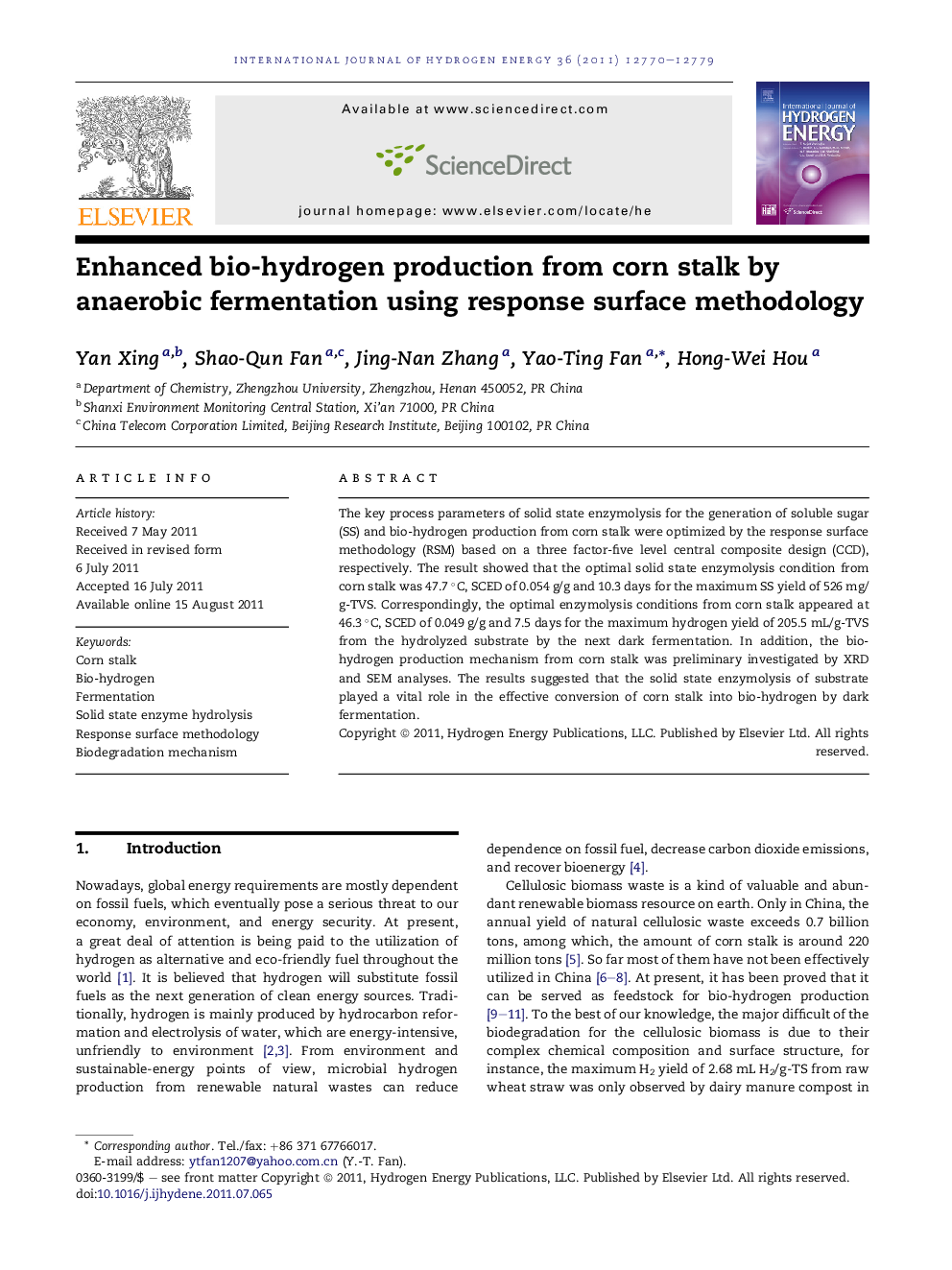| Article ID | Journal | Published Year | Pages | File Type |
|---|---|---|---|---|
| 1271941 | International Journal of Hydrogen Energy | 2011 | 10 Pages |
The key process parameters of solid state enzymolysis for the generation of soluble sugar (SS) and bio-hydrogen production from corn stalk were optimized by the response surface methodology (RSM) based on a three factor-five level central composite design (CCD), respectively. The result showed that the optimal solid state enzymolysis condition from corn stalk was 47.7 °C, SCED of 0.054 g/g and 10.3 days for the maximum SS yield of 526 mg/g-TVS. Correspondingly, the optimal enzymolysis conditions from corn stalk appeared at 46.3 °C, SCED of 0.049 g/g and 7.5 days for the maximum hydrogen yield of 205.5 mL/g-TVS from the hydrolyzed substrate by the next dark fermentation. In addition, the bio-hydrogen production mechanism from corn stalk was preliminary investigated by XRD and SEM analyses. The results suggested that the solid state enzymolysis of substrate played a vital role in the effective conversion of corn stalk into bio-hydrogen by dark fermentation.
► The key process parameters of solid state enzymolysis and bio-H2 production from corn stalk were optimized by RSM. ► The soluble sugar (SS) yield of 526 mg/g-TVS appeared at 47.7 °C, SCED of 0.054 g/g and 10.3 days by enzymolysis of substrate. ► The enhanced H2 yield of 205.5 mL/g-TVS was observed at 46.3 °C, SCED of 0.049 g/g and 7.5 days by H2 fermentation. ► The bio-H2 production mechanism of corn stalk was preliminary investigated by XRD and SEM analyses of samples. ► The solid state enzymolysis of substrate played a crucial role in efficient conversion of corn stalk into bio-H2.
